
The Art of Wholeness: The CYS Blog
A space where the art of living well meets the science of transformation.
Welcome to Circle Yoga Shala’s blog.
Here, we explore the interconnectedness of the physical, physiological, psychological, and spiritual dimensions of Being.
Our approach is rooted in timeless wisdom and informed by modern understanding, offering a holistic and elegant perspective on what it means to thrive.
From diverse movement to
contemplative philosophy, breathwork, and self-inquiry,
our blog invites you to cultivate
anti-fragility and harmony
on every level of your being.
Join us on this journey of discovery, integration, and growth! If you want to make sure you don’t miss new content, sign up for our newsletter.

The Three Yogas: A Path to Harmonious Development
Yoga is a path of integration, uniting mind, body, and heart. The three primary yogas—Jnana (knowledge), Karma (action), and Bhakti (devotion)—offer distinct yet complementary approaches to self-inquiry and transformation.
Jnana Yoga cultivates wisdom through deep discernment, Karma Yoga teaches selfless action, and Bhakti Yoga opens the heart through devotion. But Rather than separate paths, they are meant to be integrated.
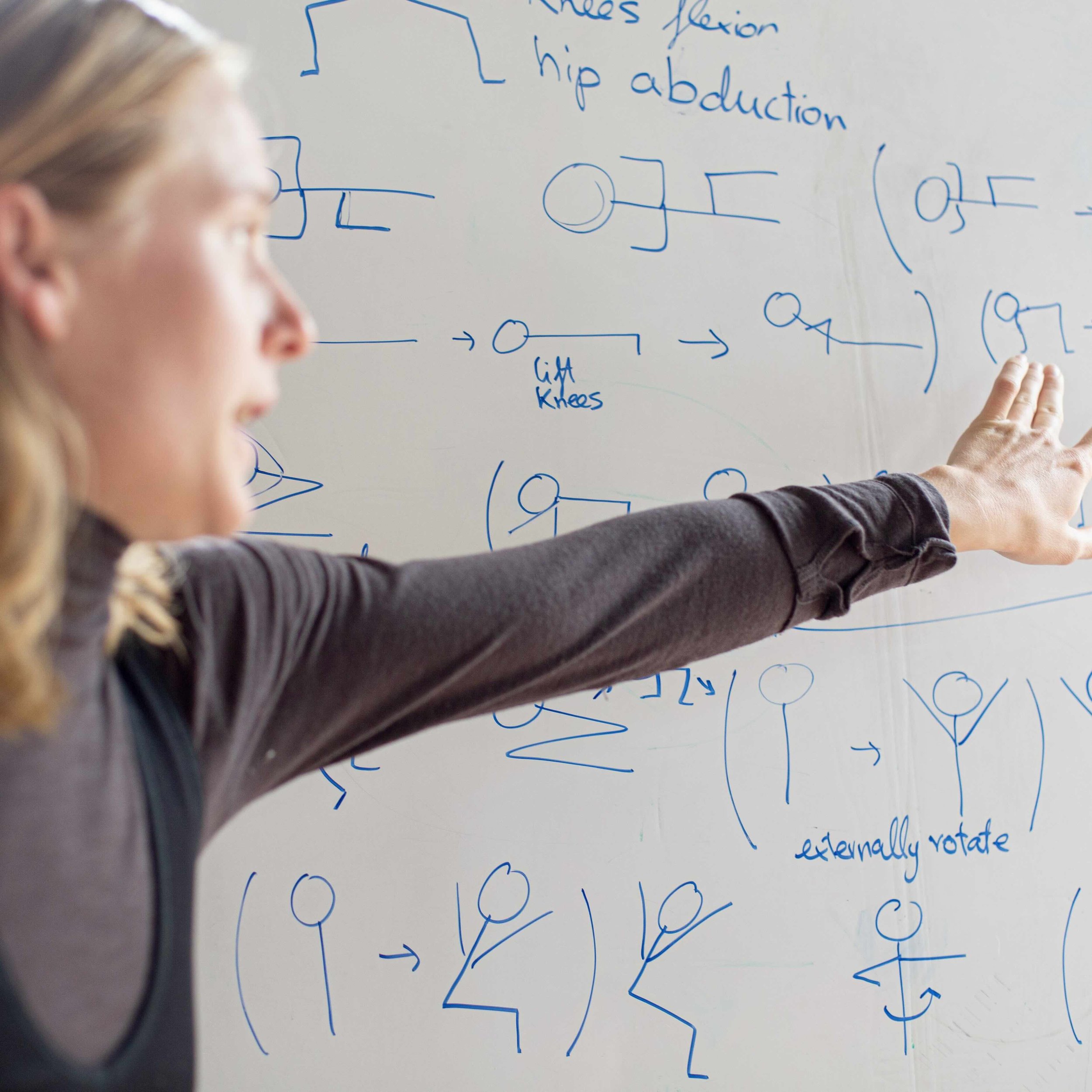
Sequencing According to Vinyasa Krama
At Circle Yoga Shala, we honor the principle of Vinyasa Krama, a systematic approach to sequencing that unfolds practice in a special, gradual way. As described by T.K.V. Desikachar, it involves building from simple to complex while maintaining steadiness and ease. This arc of progression—preparation, goal, and conclusion—ensures each step lays the foundation for the next, allowing students to safely expand their capacity and deepen their practice.
Vinyasa Krama isn't just about sequencing toward a peak posture. It's a versatile framework that can be applied to breath work, dosha balancing, or broader life goals. By learning to construct sequences thoughtfully, teachers can offer practices that feel elegant, purposeful, and truly transformative.
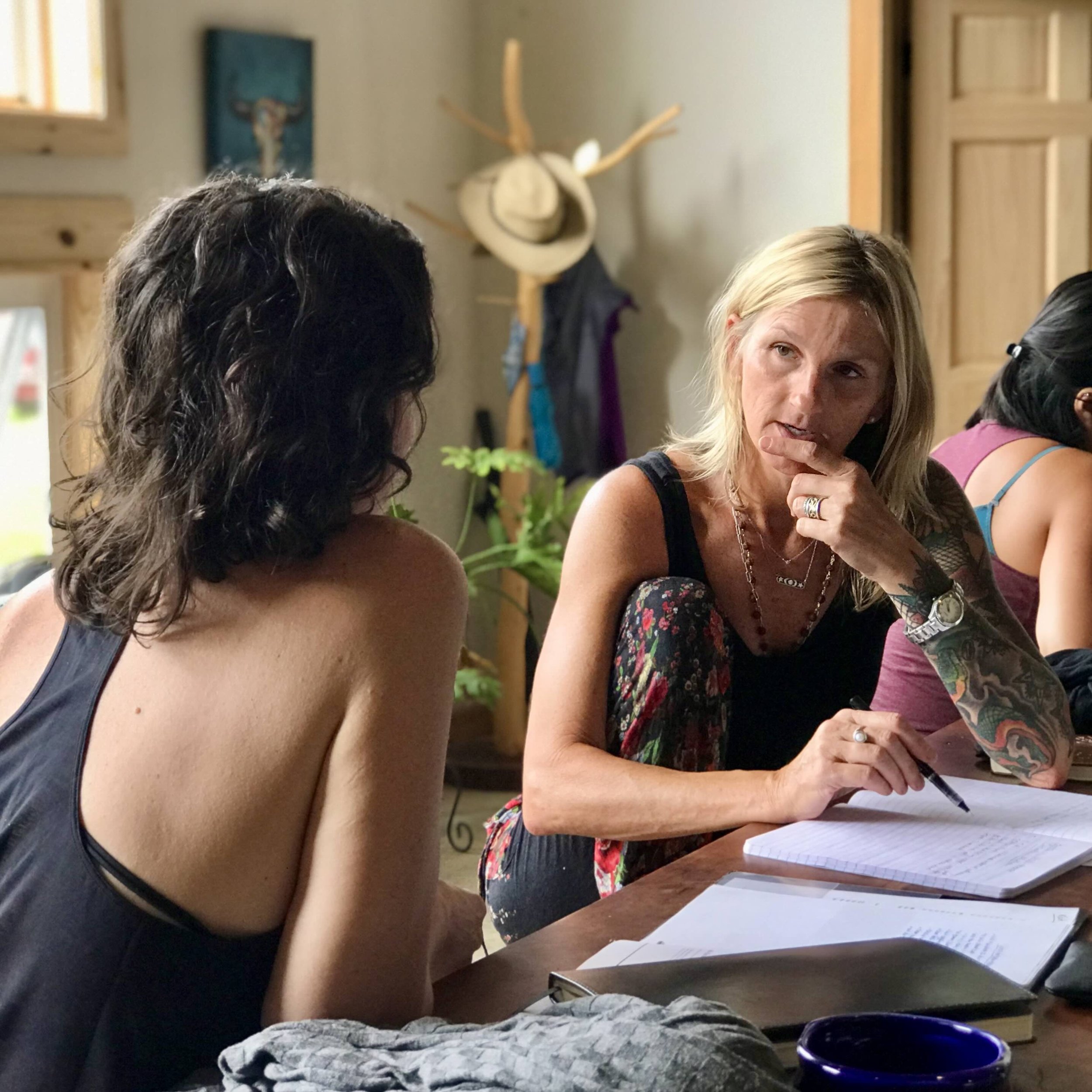
Bridging Ancient Wisdom and Modern Science: Ayurveda & Western Medicine
Ayurveda, one of the world’s oldest systems of medicine, offers a holistic approach to health that differs significantly from Western medicine. Rooted in the belief that balance within the body, mind, and environment is key to well-being, Ayurveda focuses on the dynamic interplay of elemental forces—earth, water, fire, air, and space.
While Western medicine takes a bottom-up approach, focusing on the body's parts and functions, Ayurveda uses a top-down philosophy, addressing the systemic root causes of disease.

The Nature of ️Action: Wisdom from the Gita
The Bhagavad Gita teaches that action is essential to understanding. The prince Arjuna, caught in doubt and hesitation, is told by Krishna that inaction is not an option—because both action and inaction have consequences.

Simple Isn’t Easy
Here at Circle Yoga Shala, we often remind our students that simple isn’t easy. Nowhere is this more evident than in the principle of vinyasa krama—the intentional, step-by-step progression toward a goal, both on and off the mat. More than just sequencing poses for a peak posture, this method demands discernment: each step must be necessary, aligned, and built on a stable foundation.
Yet true simplicity is deceptively difficult. It requires stripping away distractions, refining choices, and resisting the urge to do more when less is enough.
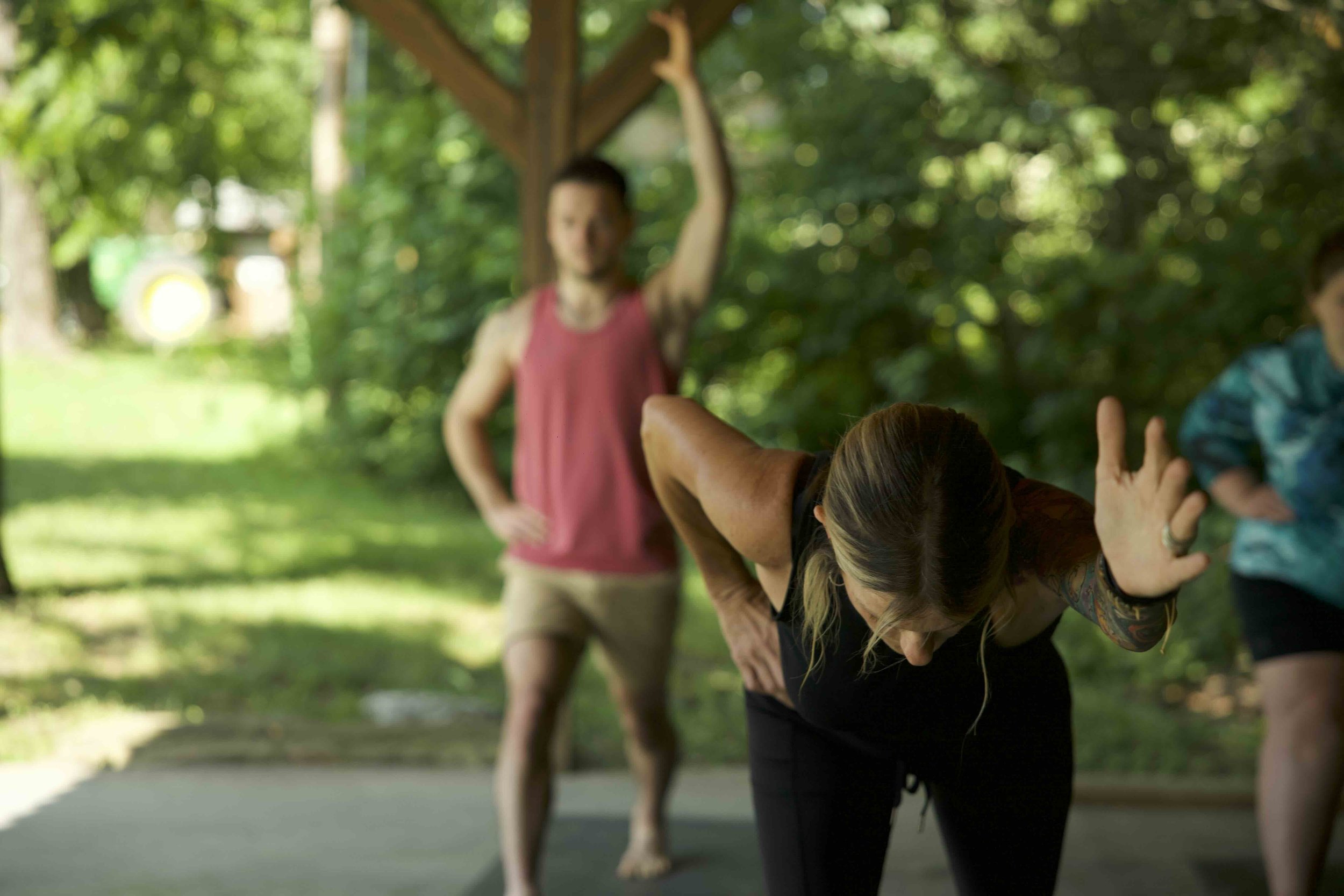
How to Align Breath with Movement
Here at Circle Yoga Shala, breath is more than a tool for mindfulness—it's an active partner in posture practice. By aligning specific breathing patterns with the demands of each pose, a technique called biomechanical matching, practitioners can enhance their practice with greater physical support, ease, and awareness.
Learn how inhaling during backbends and exhaling in forward folds can enhance and aid your yoga practice.
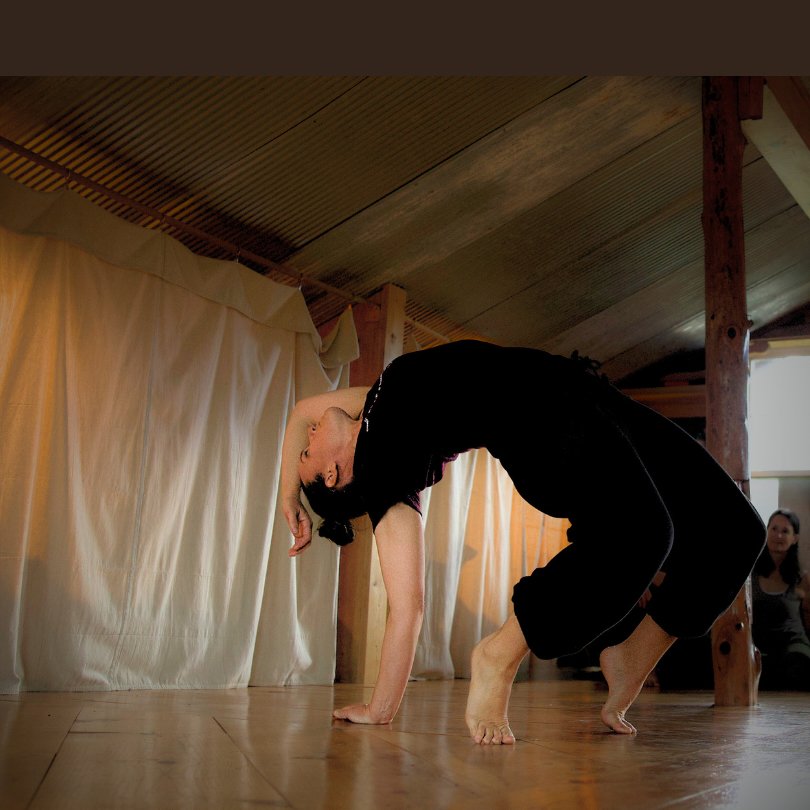
The Evolution of the Spine
Humans are uniquely equipped for upright walking, thanks to incredible evolutionary adaptations in the pelvis, spine, and rib cage. Unlike other primates, our bodies are designed to carry the weight of our head, spine, and gut directly over our feet, creating a stable and efficient structure for movement. These adaptations not only reduce energy expenditure but also enhance mobility and balance. However, modern lifestyles can disrupt this natural alignment, leading to pain and dysfunction.
Thankfully, we now have tools to restore balance and mobility by addressing these biomechanical issues, helping us move with greater ease and grace. Explore these tools (and much more) in our our 300-hour Yoga Teacher Training and MoveWise Certification. Learn to align, move, and live better.
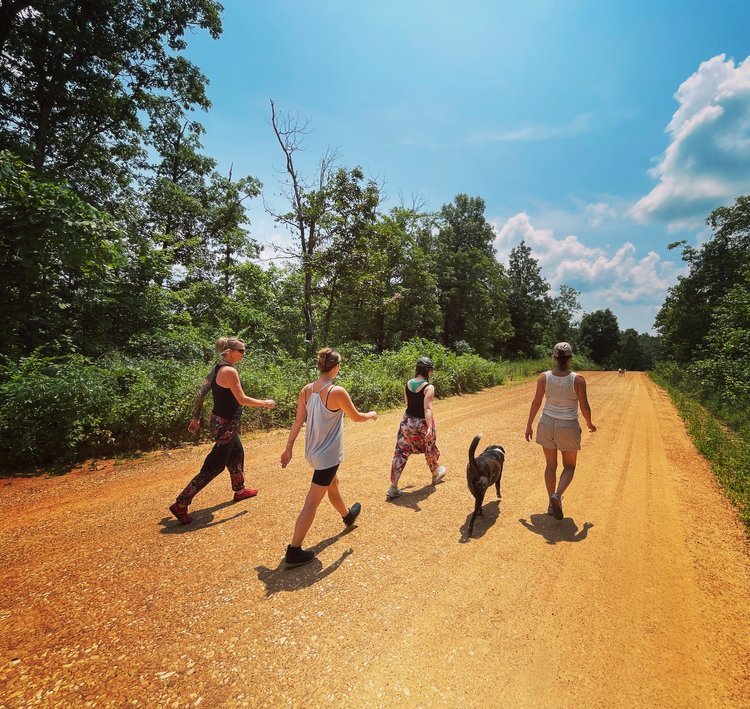
Vary Your Movement Diet: A Holistic Approach to Wellness
Movement is as essential to your well-being as the food you eat, and relying on a "mono-diet" of sitting leaves your body, mind, and spirit undernourished. At Circle Yoga Shala, we emphasize the importance of diverse movement patterns—walking, running, crawling, climbing, and more—to strengthen your body, enhance mental clarity, and foster emotional regulation.
Our programs integrate 'nutritious' movement into every aspect of learning. When was the last time you climbed, crawled, or threw something for fun?

Yoga Is Surrender
The founders of our school, Matt and Holly Krepps, have built this community on a deep understanding of Yoga as the practice of Surrender. And this concept isn’t just a metaphor; it’s a cornerstone of classical yoga philosophy as outlined in Patanjali’s Yoga Sutra and it resonates deeply with contemplative traditions worldwide.
Now, let’s take a moment to clarify what surrender really means and how it shows up in our Yoga Teacher Training.

Caring for the Breath, Always: Ancient Wisdom in Modern Practice
Breath is life, and therefore it is a precious gift. At Circle Yoga Shala, we approach breath and breathing with both reverence and simplicity, inspired by ancient texts and informed by modern understanding.
Let’s explore together some of the foundational aspects of working with the breath, often called Pranayama.

Why We Teach ‘Touchless’ Adjustments
Here at Circle Yoga Shala, we believe the role of a yoga teacher goes beyond teaching postures; it’s about empowering students to connect with their own bodies, cultivate independence, and create a space where everyone feels safe. This is why we include touchless adjustments in our yoga teacher training programs. Here’s how this approach is foundational to our teaching philosophy.
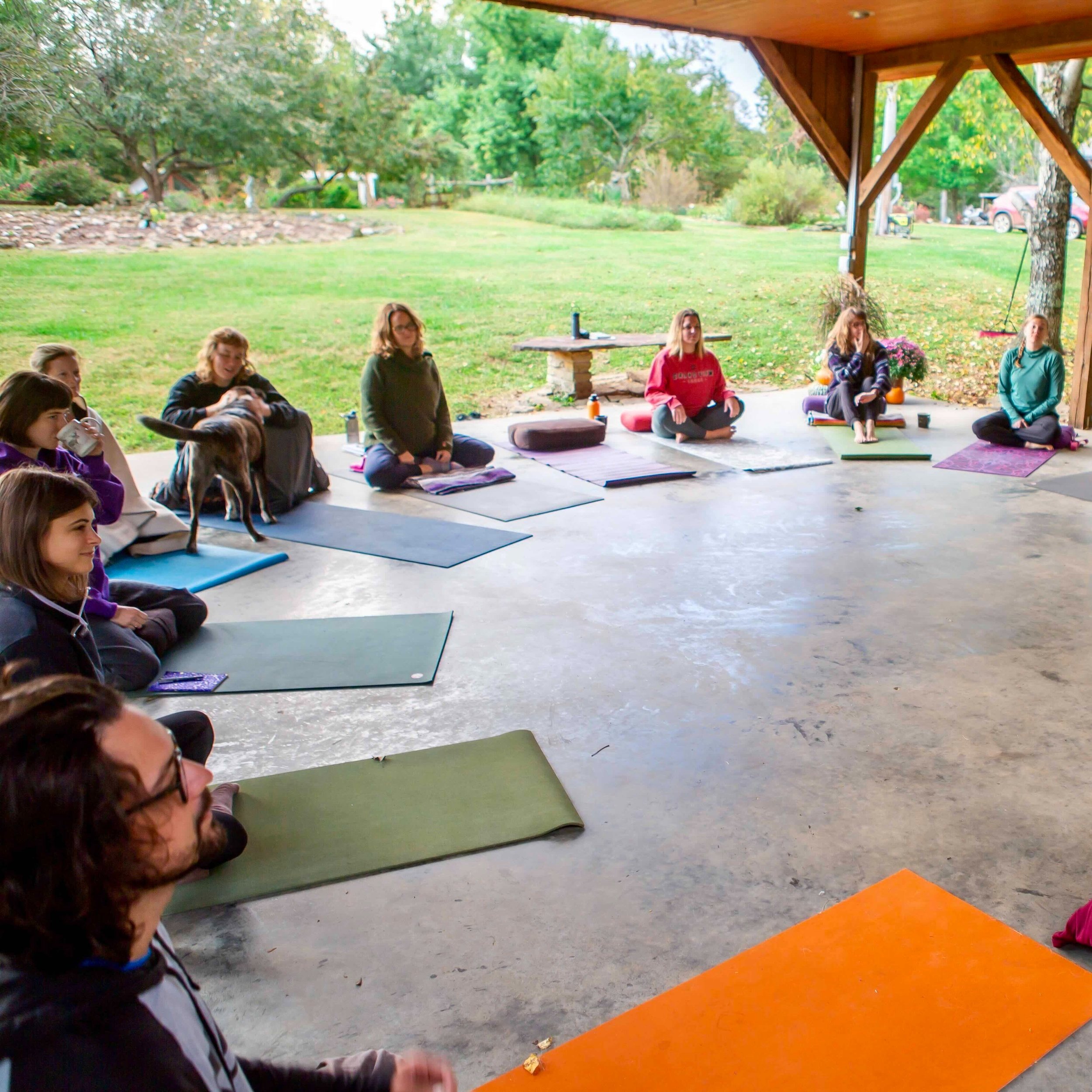
What to Look for in a Yoga Teacher Training (Part 4)
As you search for the right yoga teacher training program, you may have come across the word lineage. This concept speaks to the heart of yoga itself—a practice deeply rooted in tradition, passed down from teacher to student for thousands of years.

What to Look for in a Yoga Teacher Training (Part 3)
Let’s talk about the kind of training that keeps giving long after you’ve completed it. Find a Training That Grounds You in Principles.
Yoga is vast—it’s both a practice and a lifelong journey. The best teacher trainings equip you with not just techniques, but principles that can guide your practice and teaching for years to come. These are the “why” behind the “how,” providing a solid foundation for exploration and growth.

What to Look for in a Yoga Teacher Training (Part 2)
Not all teacher training programs are created equal. Some follow a rigid, one-size-fits-all approach, treating every student and every body as though they’re the same. But yoga is an incredibly personal practice—one that meets you where you are.
Cookie-cutter programs often miss this nuance, leaving little room for your unique body, mind, or spirit to thrive. What’s the alternative?

What to Look for in a Yoga Teacher Training (Part 1)
Choosing the right Yoga Teacher Training program can be a deeply personal decision, as well as an important one. So, what should you look for in a yoga teacher training program?
But beyond the logistics, there’s something even more essential that often gets overlooked.

A 200Hr Grad Shares Her Experience
By Hannah Lasiter, RYT200
Before attending CYS, I considered myself one of many who didn’t possess the “yoga gene”. In the classes I participated in, I thought that teachers were supposed to ignore you and let you fend for yourself. Most of the time, I felt a sense of shame that I couldn’t successfully do revolving triangle. I thought that to be a good yoga student one had to spring from the womb doing down dogs. I thought it was just natural selection keeping me from viewing myself as a “good” student.
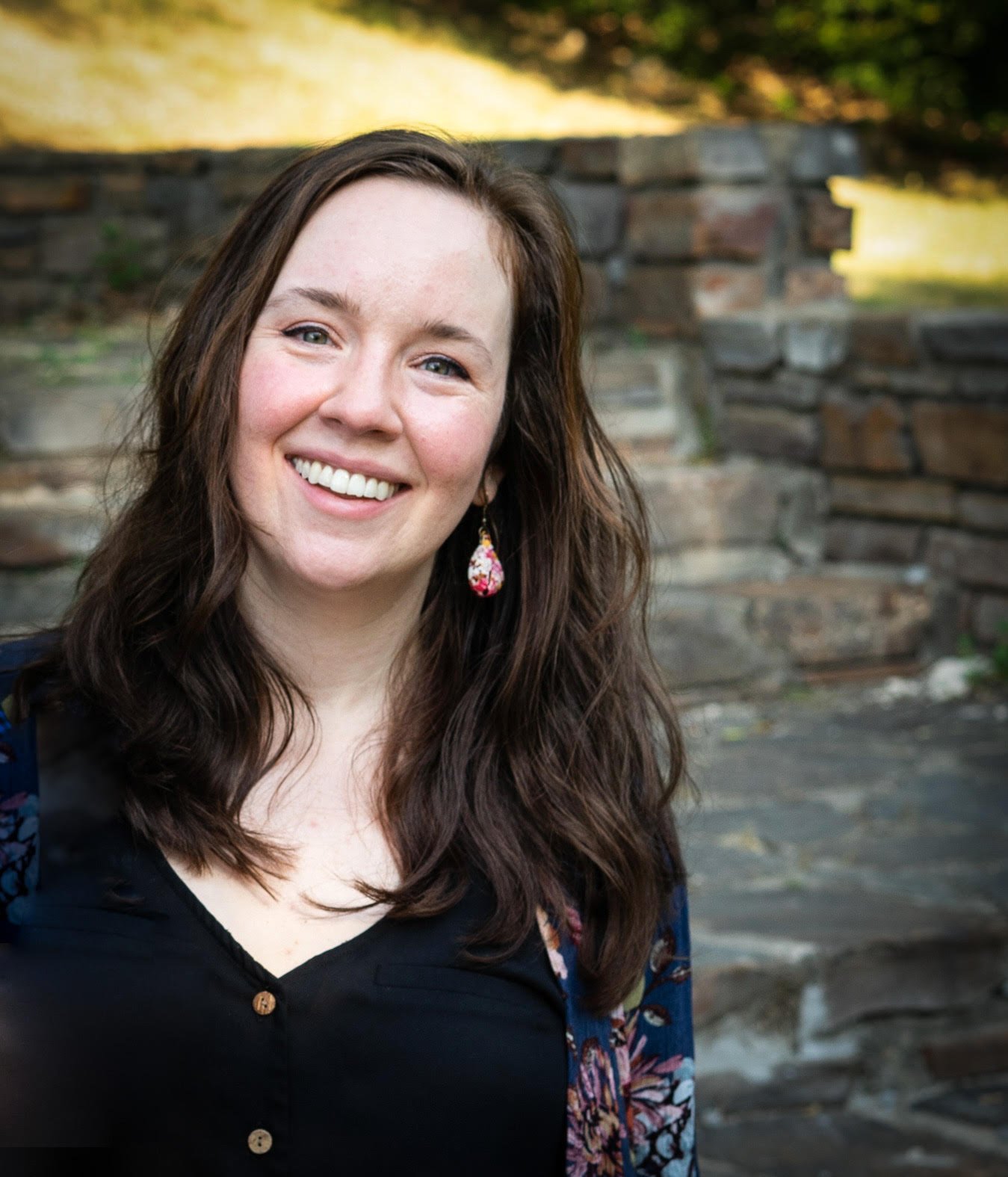
A Transformative Journey: YTT at Its Finest
By Alisyn Reid, RYT500, LCSW
The last time I came to Circle Yoga Shala, my life was in upheaval. It was the kind of upheaval that prompts you to impulsively buy an international plane ticket with a departure date in six weeks, and you only waited that long because you already made a commitment to live and study yoga for the next four weeks. It’s the kind of upheaval that interrupts your sleeping and eating; the kind that makes you avoid eye contact because if you let someone stare into your soul for too long, you think you might burst open.


